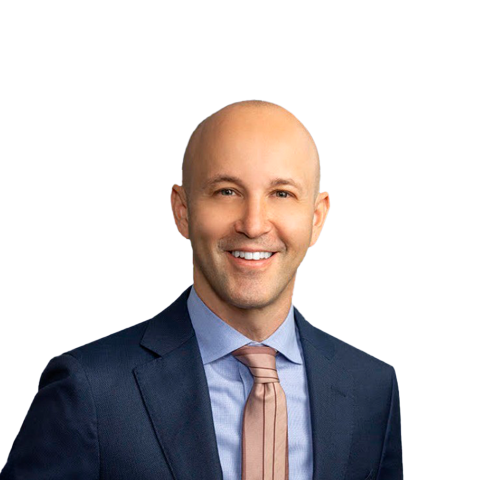Results may vary depending on your particular facts and legal circumstances. The attorney featured above is licensed in Florida. For a full list of attorneys in your state please visit our attorney page.
Labor and Employment Lawyer in Pittsburgh
If you've been underpaid, misclassified, or denied overtime, we fight wage & hour theft to recover the compensation you’ve earned and hold employers accountable.
Results may vary depending on your particular facts and legal circumstances. The attorney featured above is licensed in Florida. For a full list of attorneys in your state please visit our attorney page.
Pennsylvania Personal Injury Lawyers
We’re proud to fight for our neighbors. Meet the attorneys from your community.
100,000+ Five Star Reviews
The reasons why clients trust Morgan & Morgan.
Based on select nationwide reviews.
Results may vary depending on your particular facts and legal circumstances.
Our Results
Results may vary depending on your particular facts and legal circumstances.
How It Works
Focus on your recovery. We'll take care of the rest.

Submit your free evaluation
Start your claim

Meet your legal team

We fight for more
Results may vary depending on your particular facts and legal circumstances. The attorneys shown in these photos may not be licensed in your state. To find an attorney licensed in your area, please visit our attorney page.
Local Care
Backed by America’s Largest Injury Law Firm.
$25 Billion
Recovered for clients
nationwide700,000+
Clients and families
served1,000+
Attorneys across
the country1
Click may change your life
The attorney featured above is licensed in Florida. For a full list of attorneys in your state please visit our attorney page.
Results may vary depending on your particular facts and legal circumstances.
Learn More
Injured and not sure what to do next? We'll guide you through everything you need to know.
Get answers to commonly asked questions about our legal services and learn how we may assist you with your case.
What Qualifies as Discrimination in the Workplace?
According to the American Psychological Association (APA), discrimination is defined as the “unfair or prejudicial treatment of people and groups based on characteristics such as race, gender, age, or sexual orientation.” This can occur on an individual scale, like an employer passing up on an employee for a promotion because of their gender, or on an institution-wide scale, which can range from unequivocal hiring practices to blatantly racist employee handbook policies. Here are a few situations that would qualify as employment or workplace discrimination:
- Passing over a qualified candidate because of their race
- Only hiring one race, religion, or ethnicity
- Promoting one individual over another because of their age, despite being overqualified
- Excluding certain employees from work events because of their skin color
- Terminating someone’s employment for requesting maternity leave
- Scheduling shifts unequivocally based on protected characteristics
All of these situations might be blatant discrimination that anyone would recognize as unethical, but without being able to prove your employer acted out of prejudice, you’re not able to do much. Proving discrimination is easy in some cases and difficult in others, but choosing to proceed without an attorney is a significant risk. You don’t know what legal hurdles you’ll encounter on your path. If you’re faced with something you can’t handle promptly, you risk losing your rightful compensation and, more importantly, holding the at-fault party accountable for their unjust actions. Give yourself the best possible chance of success in your lawsuit—team up with Morgan and Morgan’s employment and workplace discrimination lawyers in Pittsburgh.
What Is a Protected Characteristic?
A protected characteristic is a personal trait that you can’t change and, therefore, cannot be used as a reason for discrimination, violence, or other forms of harm. Here are a few of the many protected characteristics that someone can possess:
- Race
- Age
- Ethnicity
- Religion
- Gender
- Sexual orientation
- Disability
- Pregnancy status
The bottom line? Every workplace should treat each employee with the same respect that they would treat another and give equal opportunity to everyone on staff, regardless of their protected characteristics. Behind every instance of employment and workplace discrimination is a person who was mistreated because of something that makes them who they are, which is just as upsetting and unfortunate as it is unethical. One person’s prejudiced decision can cost someone a job in some cases, leaving them without an opportunity that could have changed their life and the false assumption that they don’t belong. By teaming up with an attorney, you gain a legal tool that can allow you to fight back against wrongful treatment and hold them accountable for discriminating against you.
How Much Can You Win in a Discrimination Lawsuit?
Every lawsuit is different, with each one having its own respective details that increase or decrease your total compensation payout. However, some states limit the maximum amount you can seek for recovery through an employment and workplace discrimination lawsuit. Typically, the limit depends on the number of workers employed by the prejudiced employer. Here are the damage caps that apply to most states:
- 15-100 employees: $50,000 limit
- 101-200 employees: $100,000 limit
- 201-500 employee: $200,000 limit
- More than 500 employees: $300,000 limit
Regardless of the amount you’re limited to, there’s always a chance that the at-fault party tries to diminish or outright deny the compensation you’re entitled to. They may try to escape liability by delaying the case, hiding or destroying evidence, or another malicious tactic, but with the help of an attorney, you give yourself a much better chance of sidestepping these hurdles and reaching a successful outcome.
What Is the EEOC?
The U.S. Equal Employment Opportunity Commission (EEOC) enforces federal workplace discrimination laws and statutes. They investigate instances of employment or workplace discrimination, but they can also file a lawsuit and litigate cases on behalf of victims depending on the “strength of the evidence, the issues in the case, and the wider impact the lawsuit could have on the EEOC's efforts to combat workplace discrimination,” according to the EEOC. They’re involved in most lawsuits and work to eliminate discrimination in workplaces nationwide by providing leadership and guidance to numerous federal agencies.




































